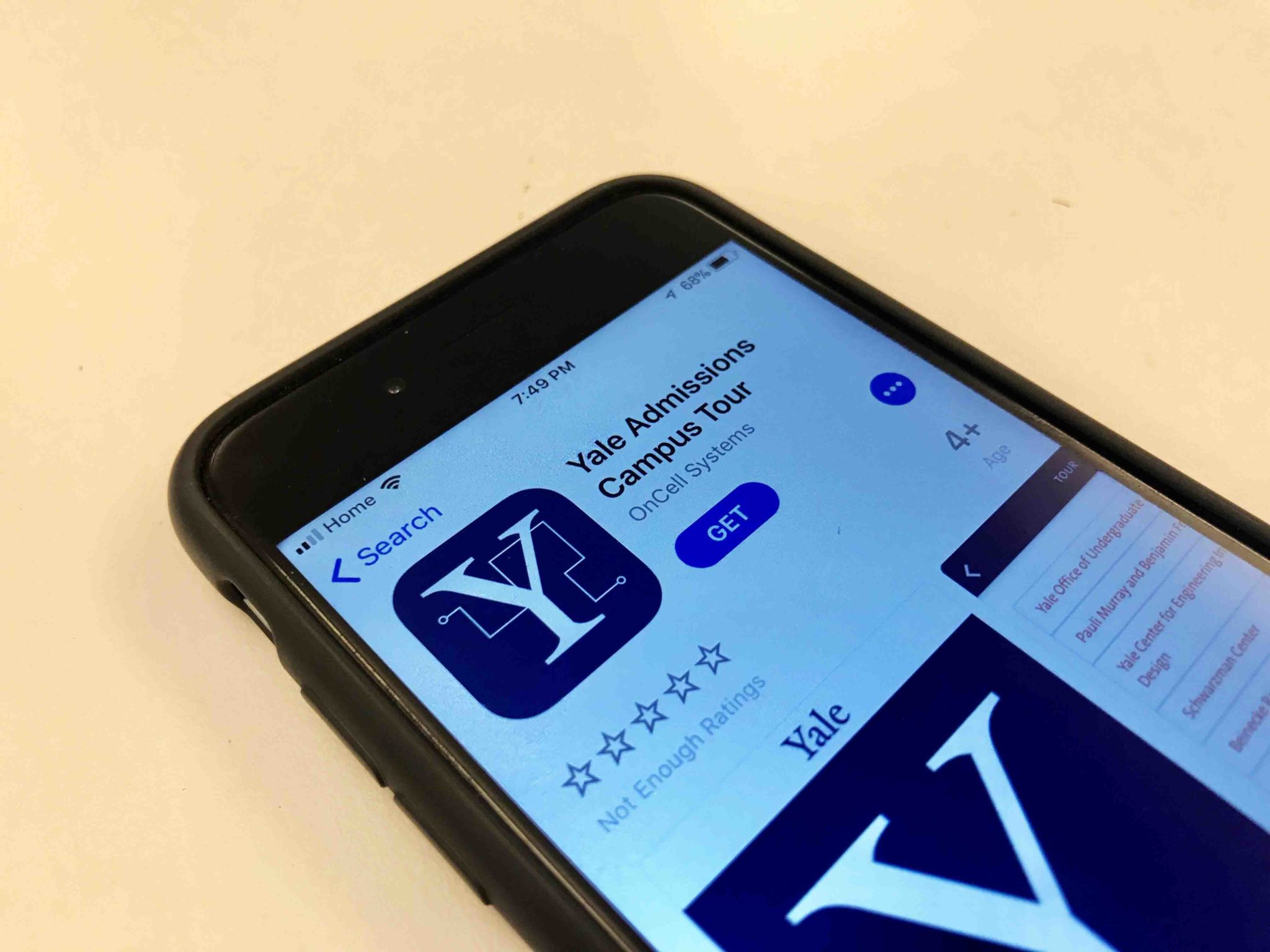
With updated online virtual tours and the creation of a new smartphone tour app, there are now more ways to explore Yale than ever before, both on campus and from the comfort of one’s own home.
Originally created in 2011, the virtual tours allow people to see Yale’s campus, halls, dorm rooms and facilities online while learning about these campus fixtures from friendly, virtual tour guides. There are five tours available, showcasing the campus in general, residential colleges, athletic facilities, engineering offerings and science facilities and research opportunities. Aside from the athletic one, all tours were updated this summer with new photographs, new locations and little tweaks to the tour guides’ scripts.
The campus tour app that rolled out this summer, called “Yale Admissions Campus Tour,” allows visitors on campus to learn more about Yale even if they cannot join an official tour. The smartphone tracks where visitors are on campus and provides information about different locations, allowing visitors to explore Yale at their own pace. It features all the stops of the University-run on-campus tour and even includes the new residential colleges, which have not yet been added to the on-campus tour.
“The virtual tour and app are a wonderful way for visitors from around the world to learn more about our campus and get a glimpse of student life at Yale,” said Nancy Franco, the director of the Yale Visitor Center. “Although we offer daily tours, it may not be practical for everyone to make a visit to New Haven.”
The new virtual tour features many locations that had not been built by 2011 and others that have been heavily renovated since then, said Director of Outreach and Communications Mark Dunn. These locations include Evans Hall, which houses the School of Management and was completed in 2014, and the Yale Quantum Institute, established in 2015.
Dunn added that he was particularly excited about showing the Yale University Art Gallery and Yale Center for British Art, as both grew in size and underwent significant changes since the last tour’s debut. The tour also showcases other facilities not previously included, such as the Leitner Family Observatory and Planetarium.
The changes to the virtual tour guides’ scripts consisted mostly of replacing outdated information, such as the number of residential colleges and the title “master,” as well as adding some new information, particularly to the Science and Engineering tours, Dunn said.
“It was really a good chance for us to review what was [in the tours] to make sure we were showcasing the most exciting spaces and stories on campus right now,” Dunn said.
The new smartphone app features both written and audio descriptions of various sites at Yale, such as Old Campus and Sterling Memorial Library. Dunn said that because some locations — the residential colleges, for instance — might be locked when visitors decide to take the self-guided tour, the app also includes some photos of the interiors of each featured campus space. The app is designed to allow users to “be in the public spaces around campus” and still be able to learn more about them, he added.
In the past, Dunn said, if visitors wanted to tour campus on their own, or simply could not make it to a scheduled tour, all Yale could provide them was a map.
The smartphone tour app and the virtual tour have one important thing in common with the on-campus tour — both are narrated by Yale’s student guides.
“It was so exciting for me to have students be featured in both of these experiences,” Dunn said. “They really are what sets Yale apart and what really connects with prospective students more than anything else.”
Leah Surrat ’18, the narrator of the virtual engineering tour, said the engineering tour she attended when she visited campus before her first year was one of the main reasons she chose to come to Yale, so it was nice to be able to share her experience with others and represent the tour guide program.
Stephanie Spear ’19, who narrated the science tour, said it was a great idea to update the tour to keep up with the changes in campus’s facilities.
“It’s actually quite surreal to think that I am the person prospective applicants will be seeing and hearing when they go learn more about science at Yale,” Spear said. “I feel really honored to be able to represent our school in this way and hope that I can do a good job of convincing prospective students to apply.”
More than 500,000 unique visitors have gone through Yale’s virtual tours since 2011.
Anastasiia Posnova | anastasiia.posnova@yale.edu







